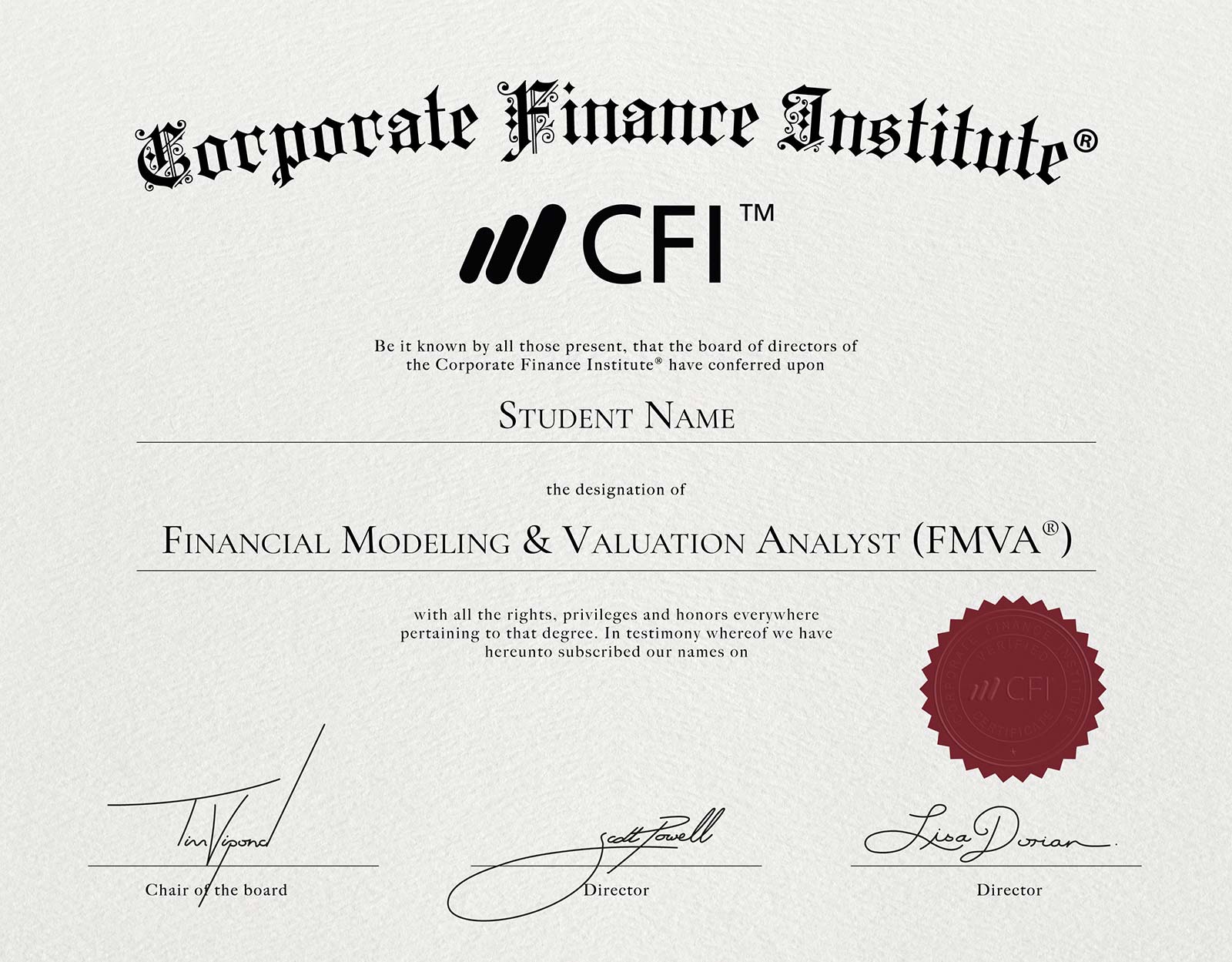Лекция президента школы “сколково” андрея шаронова о концепции life-long learning, работе с собой и внешним миром, личной эффективности
Содержание:
- Ongoing Issues in Lifelong Learning
- Train Your Brain to Crave Learning
- 3 закона непрерывного образования
- How to Cultivate the Habit of Lifelong Learning
- 1) Maintenance Learning
- Try All Learning Styles
- Тренды рынка труда
- Что будет с рынком труда в будущем
- IABC/Russia открывает дискуссию по проблеме Lifelong Learning
- Особенности Lifelong Learning
- The Importance of Lifelong Learning
- In practice
- Delors Report and the four pillars of learning
Ongoing Issues in Lifelong Learning
Despite a generation of discussion of the concept, a number of questions divide lifelong educators and policymakers. Several still prefer the term lifelong education because it implies a more explicitly intentional learning than the casual, unintended learning implied by lifelong learning. To many observers, lifelong learning itself is a contested concept with varying meanings and values. Some believe the broad humanistic and democratic idealism of the Faure Report has been sacrificed to an instrumental goal of human capital development, thus weakening the commitment to personal enrichment, civic participation, and social capital development.
Early advocates of lifelong learning not only regarded it as extending to the end of life, but also commencing in the earliest years. In practice, most innovation has come in programs conceived specifically for adults. By 2000, however, appeals to engage early schools in the lifelong learning enterprise began to reappear.
Finally, lifelong learning (and the creation of autonomous, self-directed individuals) implies a risk to learners and to social cohesion. Such emancipated persons can become less likely to defer to established institutions or to be guided by common social and cultural norms, adopting instead an analytical stance that isolates them from others and fragments society. The freedom of choice rests with them, but so also does the burden of responsibility in what some call critically reflective societies.
Train Your Brain to Crave Learning
The more we do something and notice the benefits of doing that something, the more apt we are to do it again and again. Enter a habit. Training our brains to crave learning is no different.
Here are some simple ways to begin to train your brain to crave lifelong learning:
1. Create an Objective for Your Learning
That may sound funny, but it truly does help to have an objective in mind.
For example, maybe your objective is to reduce your stress levels or find different ways to relax.
Having an objective not only makes the learning beneficial but gives it a purpose.
2. Start Small
If lifelong learning has not been your “thing”, trying to eat this learning elephant in one bite makes it more difficult to stick with. It helps to break down the learning into bite sized pieces.
For example, instead of trying to read a certain number of pages in a book every day, why not start with 15 minutes, two or three times a week?
After you have cemented that small habit into place, you can then add to it.
Advertising
3. Make it Fun.
If learning is a chore or becomes a chore, the act of doing it obviously decreases. Have some fun with your learning.
For example, for every new learning opportunity you take, give yourself some “props”. Give yourself a gold star. Make learning a game.
Whatever is going to make learning fun for you, make sure to engage the fun!
3 закона непрерывного образования
В современном мире для достижения успеха необходимо совершенствоваться каждый день. Учёба не должна заканчиваться с получением аттестата или диплома — это процесс длиною в жизнь.
Брайан Трейси, эксперт в области саморазвития
Существуют три основных закона, помогающих оптимизировать мышление для непрерывного обучения:
- Регулярная практика сокращает время выполнения задачи. Развивая тот или иной навык, вы увеличиваете свою производительность. Чем лучше вы справляетесь с каким-то делом, тем меньше времени оно у вас занимает и тем лучше получается. Простой пример: отработка заданий ЕГЭ из открытого банке ФИПИ. Чем больше прорешаешь, тем легче на экзамене.
- Знания порождают знания. Больше знаний — глубже уровень понимания. Глубже уровень понимания — больше знаний. Чем больше вы узнаёте о конкретной теме, тем лучше вы в ней разбираетесь и, следовательно, тем больше информации вы можете получить по этому вопросу на основе уже существующих знаний и опыта.
- Количество переходит в качество. В вопросах образования этот закон работает всегда. Результаты непрерывного обучения на ближней дистанции часто не видны, но в долгосрочной перспективе ваш труд обязательно будет вознаграждён. Пример: даже если уделять английскому всего 15 минут в день, рано или поздно заговоришь на языке Байрона и Шекспира.
How to Cultivate the Habit of Lifelong Learning
If you don’t know how to begin lifelong learning, here’re some ideas for you:
1. Stick Your Nose in a Book
The most obvious way to continue learning is to read often and read a variety of books. Benefits of reading are many. Here you can find great books to read:
- The 25 Best Self Improvement Books
- 35 Books on Productivity and Organizational Skills for an Effective Life
- 27 Must Read Books Every Novel Lover Should Read at Least Once
2. Engage in Deeper Thoughts and Conversations
Nothing shakes up the routine of the day-to-day surface level stuff than a deep conversation or deep thinking.
If you find that you do not have folks in your world that you can have those deeper conversations with, not to worry. Facebook , LinkedIn , and MeetUp are loaded with all sorts of groups engaging in some pretty cool conversations around topics of interest.
3. Check out Some Cool Podcasts and Videos
In your hot, little hand you hold a magical tool for learning. Education is open online in this era.
If you have not downloaded the YouTube or the TED app, give them a whirl. Some nice TED talks and podcast recommendations for you:
Advertising
- 100 TED Talks Lessons In 5 Minutes
- 20 Most Inspiring TED Talks of All Time That You Should Not Miss
- 11 Podcasts To Inspire Yourself
4. Enroll in Some Extra Curricular Classes
Community colleges offer adult learning programs and classes for professional development with a cheap price.
If attending classes in a brick’s and mortar school is not your thing, no worries. Online courses are always available via sites like Udemy and many more:
5. Leverage Your Missteps and Mistakes
Missteps and mistakes are great learning tools. Rather than judge yourself or use your missteps and mistakes as a 2×4 to beat yourself up with, take them as an opportunity to learn.
One thing that I find helpful is to take my missteps and mistakes and journal about them. To get the learning rolling I begin with a question like, “What am I meant to learn from this?” and then I let me pen just go. No overthinking or editing, just top of the mind writing.
If these ideas do not do it for you or you want more, be sure to check out Scott Young’s article right here on Lifehack:
1) Maintenance Learning
Maintenance learning refers to you keeping current with your field.
This keeps you on pace and prevents you from falling behind. Many people think that reading an occasional book and keeping current with blogs and newsletters is the equivalent of adding to their education.
This is not the case…
Maintenance learning is the same as checking the stock market reports each day to find out the sales prices of various stocks and securities. This information does not add to your knowledge of the companies, the market, or the investment potential of a particular stock.
Maintenance learning is absolutely essential. It’s similar to light physical exercise that keeps you at a particular level of fitness. It won’t increase your level of fitness or improve your conditioning in any way, but it will keep you in shape.
Try All Learning Styles
Learning styles started to gain in popularity in the 1990s. Since that time, there’s never been definitive proof that someone’s preferred learning style (auditory, visual, kinesthetic, and reading/writing) improves learning outcomes. However, knowing which style you prefer can help you learn faster.
I know I prefer to see things written out, so when I want a better chance of learning someone’s name I either write it out myself or ask them to write it, since hearing it spelled only confuses me further.
Find your preferred learning style and use it to your advantage.
But to really speed up learning, mix and match the learning styles and try to match the learning style with whatever you’re trying to learn.
For example, if you’re trying to learn a new song, you may want to hear it first. If you’re trying to figure out some new statistics, it may help to see it mapped out visually.
Тренды рынка труда
Фриланс
Сегодня во всех странах растет процент людей, работающих на фрилансе. Согласно исследованию Профсоюза фрилансеров США и сервиса удаленной работы Upwork, в 2027 году уже половина американцев перейдет на фриланс. Похожее исследование сделала компания Ernst & Young: по ее данным, уже к 2020 году каждый пятый человек во всем мире будет фрилансером.
Это значит, что большинству из нас в скором времени придется надеяться только на себя и научиться эффективно себя продавать. Устаревают требования, которые компания предъявляет к сотрудникам и подрядчикам. Это значит, что, во-первых, мы должны постоянно следить за тем, какие навыки востребованы на рынке, и приобретать их. Во-вторых,
Необходимо продумать маркетинг себя как бизнес-единицы и научиться планировать свои финансы.
Это подтверждает и статистика. Профессионалы, работающие на фрилансе, как правило, готовы оплачивать свое дополнительное обучение: 93% фрилансеров считают, что дополнительные курсы, которые они получили после первого высшего образования, были значительно полезнее, чем их высшее основное образование.
Вторая карьера
Долгое время считалось, что 35–40-летние люди, озабоченные поиском второй карьеры, — так называемые сбитые летчики. Но сейчас это нормальный путь для любого специалиста. Сегодня уже не получится выстраивать свой профессиональный путь по одной траектории. Например, если сейчас вам около 25 лет и вы работаете SMM-специалистом, то вы не можете планировать свою карьеру даже на пять лет вперед, потому что скоро появятся другие платформы и станет востребован иной тип работы. Таким образом, вторая карьера очень помолодела и начинается сейчас с 30–35 лет.
Кроме того,
Первое высшее образование для большинства людей — случайность, и, как правило, не определяет жизненный путь человека.
«Эффект Алисы»
Третий тренд — как в «Алисе в Зазеркалье»: «Нужно бежать со всех ног, чтобы только оставаться на месте, а чтобы куда-то попасть, надо бежать как минимум вдвое быстрее». Сегодня вам нужно постоянно двигаться, даже чтобы просто сохранить вашу нынешнюю компенсацию труда. Я уже не говорю о том, чтобы серьезно вырасти по карьерной лестнице.
Более того, сейчас компаниям в принципе невыгодна стабильность сотрудника. Под новый проект легче быстро нанять команду с соответствующими компетенциями, а потом расстаться с этими людьми и перейти к следующему проекту. Это нормальная современная экономика, когда
Пенсия как страховка будущего уходит в небытие и обесценивается во всем мире: повышается пенсионный возраст, снижается размер выплат. Все больше людей понимают, что работать они будут до смерти, и эффект старения населения тоже не только российская особенность. Поэтому lifelong education — экономический императив для большинства стран. Но это позитивная новость, ведь уже нельзя сказать, что 40-летние никому не нужны. По данным Международной организации труда, через десять лет средний возраст каждого работающего человека в мире составит 41 год. Сложно будет отказаться от сотрудников 50 лет, несмотря на то что все говорят об ужасах «предпенсионного возраста», — просто потому, что других не появится. Но при этом нужно хотя бы выучиться тому, что нужно работодателям.
Что будет с рынком труда в будущем
Стоит отметить, что в течение следующих 20–30 лет исчезнут более 30 существующих сейчас интеллектуальных и более 20 рабочих профессий, таких как копирайтер, журналист, аналитик, оператор call-центра, почтальон, инспектор ДПС, билетер и многие другие. (Подробнее в “Атласе будущих профессий”)
Миграция рабочей силы, в свою очередь, приведет к тому, что те специалисты, которых сегодня мы называем “дешевой рабочей силой”, начнут развивать свои компетенции и совсем скоро смогут конкурировать в таких областях, как гостиничный и ресторанный сервис, продажи, строительство и т. д.
На самом деле будущее уже здесь, просто пока оно наступило неравномерно. Это позволяет многим проживать жизнь по старинке. Им так комфортнее.
Но совсем скоро молодое поколение специалистов будет вынужденно от этого комфорта отказаться и начать менять свою жизнь.
IABC/Russia открывает дискуссию по проблеме Lifelong Learning
Юлия Стоногина, вице-президент, руководитель Комитета по международным связям:
Уважаемые коллеги!
IABC/Russia открывает дискуссию по проблеме Lifelong Learning (Обучение в течение всей жизни).
Lifelong Learning является одним из ведущих образовательных трендов Европейского Сообщества и государств-соседей. Абсолютное большинство европейских стран поддержали Меморандум ЕС по образованию в течение всей жизни и следуют ему в вопросах определения государственной политики. Россия находится за бортом этих процессов, утратив соответствующие институты советского периода (повышение квалификации и т.п.) и не ставя задачу развивать новые образовательных форматы в рамках актуальных европейских тенденций.
Между тем «экономика, основанная на знаниях», вытесняет предшествующий формат индустриальной экономики. Этому должен соответствовать новый принцип построения государственной образовательной системы, который поощряет в человеке компетентность, конкурентоспособность, социальную уверенность и профессиональную реализацию.
Мы приглашаем к открытой дискуссии представителей системы образования, от учителей до госчиновников, независимых экспертов, журналистов и частных граждан, небезразличных к вопросам образования в России
Пожалуйста, оставляйте ваши мнения в этом блоге – они важны нам как выражение общественного внимания к этому важному вопросу. Они будут учтены при выработке рекомендаций для Администрации Президента, Госдумы, Минобрнауки, Минздравсоцразвития, РСПП, Российской Академии Образования, Федерального Института Развития Образования.
Наши партнеры – Центр изучения проблем профессионального образования и РИА Новости
Вместе мы предполагаем провести Круглый Стол по теме Lifelong Learning 4 июня с.г. на площадку РИАНа. Детальный анонс о мероприятии будет размещен после 25-го мая.
|
|
Особенности Lifelong Learning
Хотя традиционное, формальное обучение является очень значительной частью концепции, особое значение для нее имеют такие виды обучения, как самостоятельное и неформальное.
По сути, вся жизнь человека представляет собой неформальное обучение. Оказываясь в самых различных ситуациях, встречая на своем пути самых разных людей и завязывая с ними те или иные отношения, приобщаясь к родной культуре и изучая чужие, разрешая разнообразие встающих перед ним проблем, человек обучается. Он приобретает новые ценности, установки, взгляды, знакомится с разными точками зрения, открывает для себя новые проблемы, приобретает новые знания и овладевает новыми умениями. Все это в огромной степени и составляет суть непрерывного обучения.
Lifelong Learning непредставимо без личной мотивации каждого обучающегося. Концепция предполагает, что обучение происходит добровольно, и никто, кроме самого человека, не несет за него ответственности
Поэтому очень большую важность имеют личностные черты каждого – возможно, только потенциального – обучающегося, и главное – его желание учиться. Интересно, что причин материального характера недостаточно, чтобы заставить людей учиться
Необходимо, чтобы им был приятен и интересен сам процесс обучения, а не только его возможные результаты.
Причины, по которым люди учатся, очень разнообразны, и при этом тех, что связаны с профессией или желанием улучшить своё благосостояние, не так уж много. Люди учатся, чтобы углубить свой профессионализм или начать собственное дело, — но при этом ничуть не реже обучение нужно им затем, чтобы расширить свой кругозор и углубить знания, чтобы познакомиться с новыми людьми, войти в те или иные сообщества, или просто чтобы стать увереннее в себе и развить в своем характере желаемые черты и качества.
The Importance of Lifelong Learning
Lifelong learning refers to the process of gaining knowledge and learning new skills throughout your life. Many people continue their education for personal development and fulfillment, while others see it as a significant step toward career advancement.
If you’ve been thinking about building your skills, CFI’s Financial Modeling and Valuation Analyst (FMVA) CertificationFMVA CertificationJoin 350,600+ students who work for companies like Amazon, J.P. Morgan, and Ferrari  program may be the next step towards a career in financial analysis!
program may be the next step towards a career in financial analysis!
Why is Lifelong Learning Important?
The corporate world is continuously evolving, with industries and jobs expanding at a rapid rate. Job descriptions change and skill sets that used to be needed for a particular job may not be enough nowadays.
Employees need to keep up with the fast pace of the industry they’re in.
It’s not surprising to know that many are worried about keeping their jobs, or if there will be enough jobs in the future. This worry can be attributed to the following two factors.
#1 Automation and Artificial Intelligence
The age of automation and AI is upon us. While it comes with a range of advantages, it also has its share of drawbacks. For instance, it poses a threat to blue-collar workers who perform routine tasks and can also affect white-collar employees in knowledge industries.
Continue advancing your career by checking out CFI’s free courses!
#2 Emergence of the Gig Economy
The gig economy reshapes the way we hire workers and contributes to employees’ worries about their careers in the future. Instead of giving them full-time jobs, employers tend to contract independent workers on a short-term basis.
The fear of losing jobs in the future applies across all industries and explains why many people think it’s crucial to keep upgrading their skills, so they can adapt to changes in the workplace.
Based on a survey by the Pew Research Center, 87% of workers think it’s important to undergo training for skills development while they’re working.
What are the Benefits of Lifelong Learning?
Whether you are doing it to develop skills or grow your career, lifelong learning can do wonders not only for your professional life but also for your personal development. Focus on what you want to do in the future since your education will have a huge impact on your career.
Below are some of the benefits of lifelong learning:
Corporate Finance Institute’s courses help you stay on top of your industry!
#2 It keeps you motivated
Having an interest in your job can help you feel more confident about your work. If you find that you’re losing interest in what you do, learning something new can ignite your spirit and help you become motivated again to pursue your career goals.
Many find themselves stressed out or in a rut after several months or a few years in the job due to their ever-changing job responsibilities. Become motivated by further honing your skills or learning new ones!
#3 It helps improve the quality of your life
The benefits of lifelong learning go beyond career advancement. It can help you understand how the world works. It can help you realize your passions and boost creativity. Whatever it is that you’re interested in, it is one way to live a better life.
As the saying goes, learning is a never-ending process. The world of work is rapidly changing, and people need lifelong learning to advance their skills and stay relevant. Whether it’s going back to the university, taking online courses, or attending industry-specific seminars and workshops, find a way to fit at least one of them into your life for career growth.
Additional Resources
Corporate Finance Institute has a variety of courses and resources that can help you expand your knowledge and advance your career! Check them out below:
- Introduction to Corporate Finance
- 10 Poor Study Habits to Avoid10 Poor Study Habits to AvoidStudy habits are different for everyone. Some are effective as students move up the educational ladder, while other habits do more harm than good.
- How to Succeed in eLearning – 10 Tips for Online LearnersHow to Succeed in eLearning: 10 Tips for Online Learners10 study tips to help you transition and adapt to eLearning.
- Career Map
In practice
In India and elsewhere, the «University of the Third Age» (U3A) provides an example of the almost spontaneous emergence of autonomous learning groups accessing the expertise of their own members in the pursuit of knowledge and shared experience. No prior qualifications and no subsequent certificates feature in this approach to learning for its own sake and, as participants testify, engagement in this type of learning in later life can indeed ‘prolong active life’.
In Sweden the successful concept of study circles, an idea launched almost a century ago, still represents a large portion of the adult education provision. The concept has since spread, and for instance, is a common practice in Finland as well. A study circle is one of the most democratic forms of a learning environment that has been created. There are no teachers and the group decides on what content will be covered, scope will be used, as well as a delivery method.
Sometimes lifelong learning aims to provide educational opportunities outside standard educational systems—which can be cost-prohibitive, if available at all. On the other hand, formal administrative units devoted to this discipline exist in a number of universities. For example, the ‘Academy of Lifelong Learning’ is an administrative unit within the University-wide ‘Professional and Continuing Studies’ unit at the University of Delaware. Another example is the Jagiellonian University Extension (Wszechnica Uniwersytetu Jagiellonskiego), which is one of the most comprehensive Polish centers for lifelong learning (open learning, organizational learning, community learning).
In recent years, ‘lifelong learning’ has been adopted in the UK as an umbrella term for post-compulsory education that falls outside of the UK higher education system – further education, community education, work-based learning and similar voluntary, public sector and commercial settings.
Most colleges and universities in the United States encourage lifelong learning to non-traditional students. Professional licensure and certification courses are also offered at many universities, for instance for teachers, social services providers, and other professionals. Some colleges even enable adults to earn credit for the college-level learning gained through work, volunteer and other experiences.
Bangladesh Open University (BOU) has six schools and is offering 23 formal and 19 nonformal programs. The number of enrolled students in formal programs for 2016 was 433,413. Most of the courses of BOU are for professional development and most of the students are professional people who are getting scope to study in flexible hours. BOU is the only public institution in the country that imparts education in distance mode. In place of campus based teaching, this university uses technology including electronic devices to reach people in different corners of the country.
In Canada, the federal government’s Lifelong Learning Plan allows Canadian residents to withdraw funds from their Registered Retirement Savings Plan to help pay for lifelong learning, but the funds can only be used for formal learning programs at designated educational institutions.
Priorities for lifelong and life-wide learning have different priorities in different countries, some placing more emphasis on economic development (towards a learning economy) and some on social development (towards a learning society). For example, the policies of China, Republic of Korea, Singapore and Malaysia promote lifelong learning in a human resource development (HRD) perspective. The governments of these countries have done much to foster HRD whilst encouraging entrepreneurship.
Delors Report and the four pillars of learning
The Delors Report proposed an integrated vision of education based on two key paradigms: lifelong learning and the four pillars of learning. The report proposed a holistic conceptual framework of learning, that of the ‘four pillars of learning’. It argued that formal education tends to emphasize the acquisition of knowledge to the detriment of other types of learning essential to sustaining human development. It stressed the need to think of learning over the life course, and to address how everyone can develop relevant skills, knowledge and attitudes for work, citizenship and personal fulfillment. The four pillars of learning are:
- Learning to know
- Learning to do
- Learning to be
- Learning to live together
It is important to note that the four pillars of learning were envisaged against the backdrop of the notion of ‘lifelong learning’, itself an adaptation of the concept of ‘lifelong education’ as initially conceptualized in the 1972 Faure publication Learning to Be.















